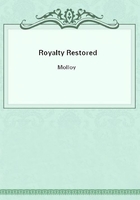
第60章 CHAPTER X.(6)
One fair summer day Captain Howard gave an entertainment at Spring Gardens, in honour of the countess. These gardens were situated close by Charing Cross, and opened into the spacious walks of St. James's Park. Bounded on one side by a grove, and containing leafy arbours and numerous thickets, the gardens were "contrived to all the advantages of gallantry." The scene of many an intrigue, they were constantly frequented by denizens of the court and dwellers in the city, to whom they afforded recreation and pleasure. In the centre of these fair gardens stood a cabaret, or house of entertainment, where repasts were served at exceeding high prices, and much good wine was drunk.
Here it was Captain Howard received my Lady Shrewsbury and a goodly company, spread a delicate banquet for them, and for their better diversion provided some excellent music played upon the bagpipes, by a soldier noted for his execution on that instrument.
Jermyn hearing of the great preparations Captain Howard made, resolved to be present on the occasion; and accordingly, before the hour appointed for dinner, betook himself to the garden, and as if he had arrived there by accident, strolled leisurely down the broad pleasant paths, bordered by pinks and fragrant roses clustering in the hedgerows. And presently drawing nigh the cabaret, he tarried there until the countess, rich in physical graces, with sunny smiles upon her lips, and amorous light in her eyes, stepped forth upon the balcony and greeted him. Whereon his heart took fire: and entering the house, he joined her where she stood, and held pleasant converse with her. Inflated by his success, he resolved on making himself disagreeable to the host, and therefore ventured to criticize the entertainment, and ridicule the music, which he voted barbarous to civilized ears.
And to such an extent did he outrage Thomas Howard, that the gallant captain, being more of a soldier than a courtier, and therefore preferring passages at arms to those of wit, could scarce refrain from drawing his sword and demanding the satisfaction due to him.
However, he subdued his wrath till the day was spent, and early next morning sent a challenge to his rival. Accordingly they met with fierce intent, and the duel which followed ended almost fatally for Jermyn, who was carried from the scene of encounter bleeding from three wounds caused by his antagonist's sword.
The unfortunate issue of this fight deprived Lady Shrewsbury of two lovers; for Howard, having rendered Jermyn unable to perform the part of a gallant, was obliged to fly from the country and remain abroad some time.
In their stead the countess sought consolation in the companionship of Thomas Killigrew, a handsome man and a notable courtier. She therefore had no regrets for the past: and he was entirely happy in the present, so that he boasted of his felicities to all acquaintance, in general, and to his friend the Duke of Buckingham in particular. It was Killigrew's constant habit to sup with his grace, on which occasions his conversation invariably turned on her ladyship, when, his imagination being heated by wine, he freely endowed her with the perfections of a goddess. To such deions the duke could not listen unmoved;and therefore resolved to judge for himself if indeed the countess was such a model of loveliness as Killigrew represented.
Accordingly, at the first opportunity which presented itself, the duke made love to her, and she, nothing averse to his attentions, encouraged his affections. Killigrew was much aggrieved at this unexpected turn of affairs, and bitterly reproached the countess;but she, being mistress of the situation, boldly denied all knowledge of him.
This was more than he expected or could endure, and he consequently abused her roundly in all companies, characterizing the charms of which he once boasted as faults he could not endure; ridiculing her airs, and denouncing her conduct. Reports of his comments and discourses speedily reached Lady Shrewsbury's ears; and he was privately warned that if he did not desist means would be taken to silence him effectually. Not being wise enough to accept this hint he continued to vilify her. The result was, one night when returning from the Duke of York's apartments he was suddenly waylaid in St. James's Park, and three passes of a sword made at him through his chair, one of which pierced his arm. Not doubting they had despatched him to a better world, His assailants made their escape; and my Lady Shrewsbury, who singularly enough happened to be passing at the time in her coach, and had stopped to witness the proceedings, drove off as speedily as six horses could carry her.
Knowing it would be impossible to trace the villainy which had prompted this deed to its source, Killigrew said not a word concerning the murderous attempt, and henceforth held his peace regarding his late mistress's imperfections. For some time she continued her intrigue with the Duke of Buckingham without interference. But in an evil hour it happened the Earl of Shrewsbury, who had long entertained a philosophical indifference towards her previous amours, now undertook to defend his honour, which it was clear his Grace of Buckingham had sadly injured.
Accordingly he challenged the duke to combat, and in due time they met face to face in a field by Barnes Elms. His grace had as seconds Sir Robert Holmes and Captain William Jenkins; the earl being supported by Sir John Talbot and Bernard Howard, son of my Lord Arundel. The fight was brief and bloody; Lord Shrewsbury, being run through the body, was carried from the field in an insensible condition. The duke received but a slight wound, but his friend Captain Jenkins was killed upon the spot.
The while swords clashed, blood flowed, and lives hung in a balance, the woman who wrought this evil stood close by, disguised as a page, holding the bridle of her lover's horse, as Lord Orford mentions.